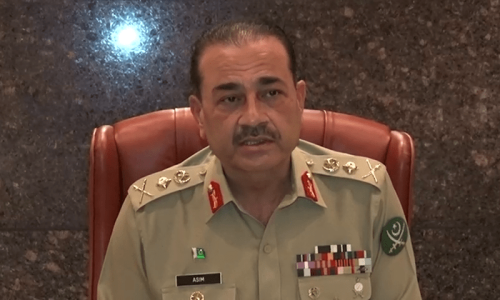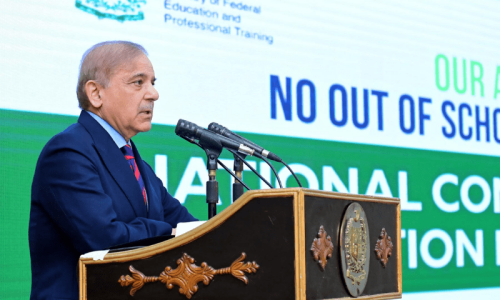THE militant landscape is nothing if not resilient, adapting to the changes in its environment and the pressures exerted upon it by counterterrorism forces. Law-enforcement agencies must therefore constantly stay one step ahead if they are to even reduce its lethality, let alone eliminate it.
The 32nd report of the UN’s Analytical Support and Sanctions Monitoring Team offers insight into how militant outfits readjust their strategies; where Pakistan is concerned, political developments in Afghanistan are having an impact whose long-term consequences could be devastating.
For instance, the document notes that in Africa’s Sahel region, Al Qaeda and the militant Islamic State group “compete for resources, territory, and hearts and minds” which leads to violent conflict between them.
However, there is “greater fluidity in Afghanistan where relationships and affiliations have a longer history and are more complex. The distinctions between members of Al Qaeda and affiliated groups, including TTP, and [IS-Khorasan] are at times blurred at the edges”.
Thus, in this region, militants may identify with more than one group, with a tendency to align themselves with the “dominant or ascending power”.
The Afghan Taliban’s assumption of power is giving increased operational space to the TTP in Afghanistan, and the spike in cross-border attacks by the banned outfit against Pakistan is compelling evidence of this.
Although pressure by the government here did compel Kabul to relocate certain TTP elements away from the border area, the Taliban’s refusal to take coercive measures against the group could add another layer of complexity to the situation.
According to the report, evidence suggests that “other sanctioned terrorist groups are using support to TTP as a means to evade control by the Afghan Taliban”.
It adds, this could even lead to a range of foreign outfits coalescing under the TTP’s umbrella; already, there are indications that Al Qaeda is providing “guidance” to the TTP for carrying out attacks inside Pakistan, and that TTP fighters have access to training camps of foreign terror groups in Kunar province.
Al Qaeda and IS have also given considerable autonomy to groups affiliated with them; decentralising terror networks enhances their operational effectiveness and ability to tackle CT measures.
Perhaps that is why in Pakistan, one has of late been witnessing attacks by little-known outfits claiming to have links with one or the other of these major terrorist entities.
There is also the Jamaatul Ahrar, with its on-again, off-again relationship with the TTP, whose members are suspected of involvement in several recent acts of terrorism.
The Punjab CTD yesterday claimed to have arrested in several intelligence-based organisations 17 suspected militants belonging to various banned groups. We cannot afford to let up. On no account must violent extremist groups get the opportunity to hold Pakistan hostage again.
Published in Dawn, July 29th, 2023















































Dear visitor, the comments section is undergoing an overhaul and will return soon.